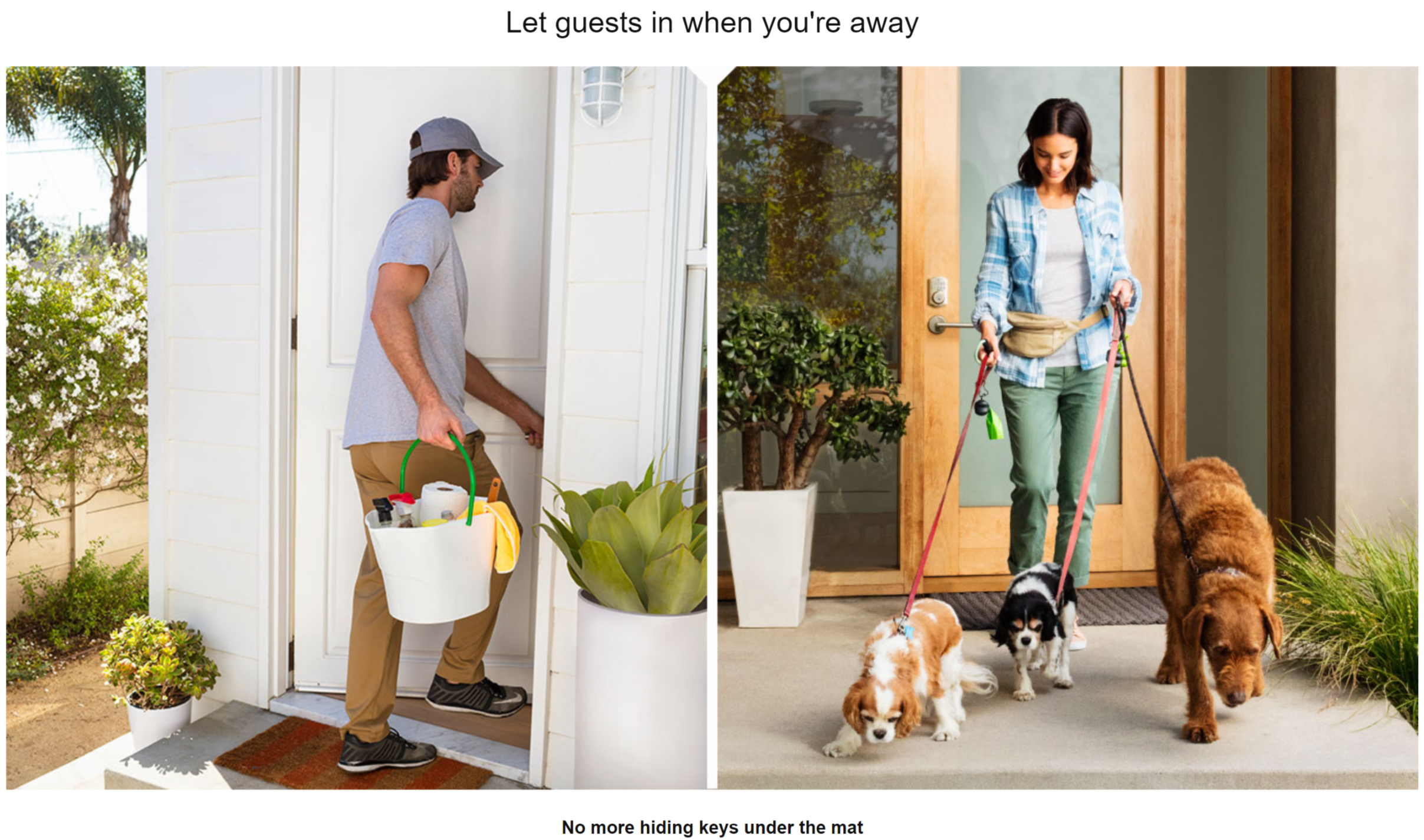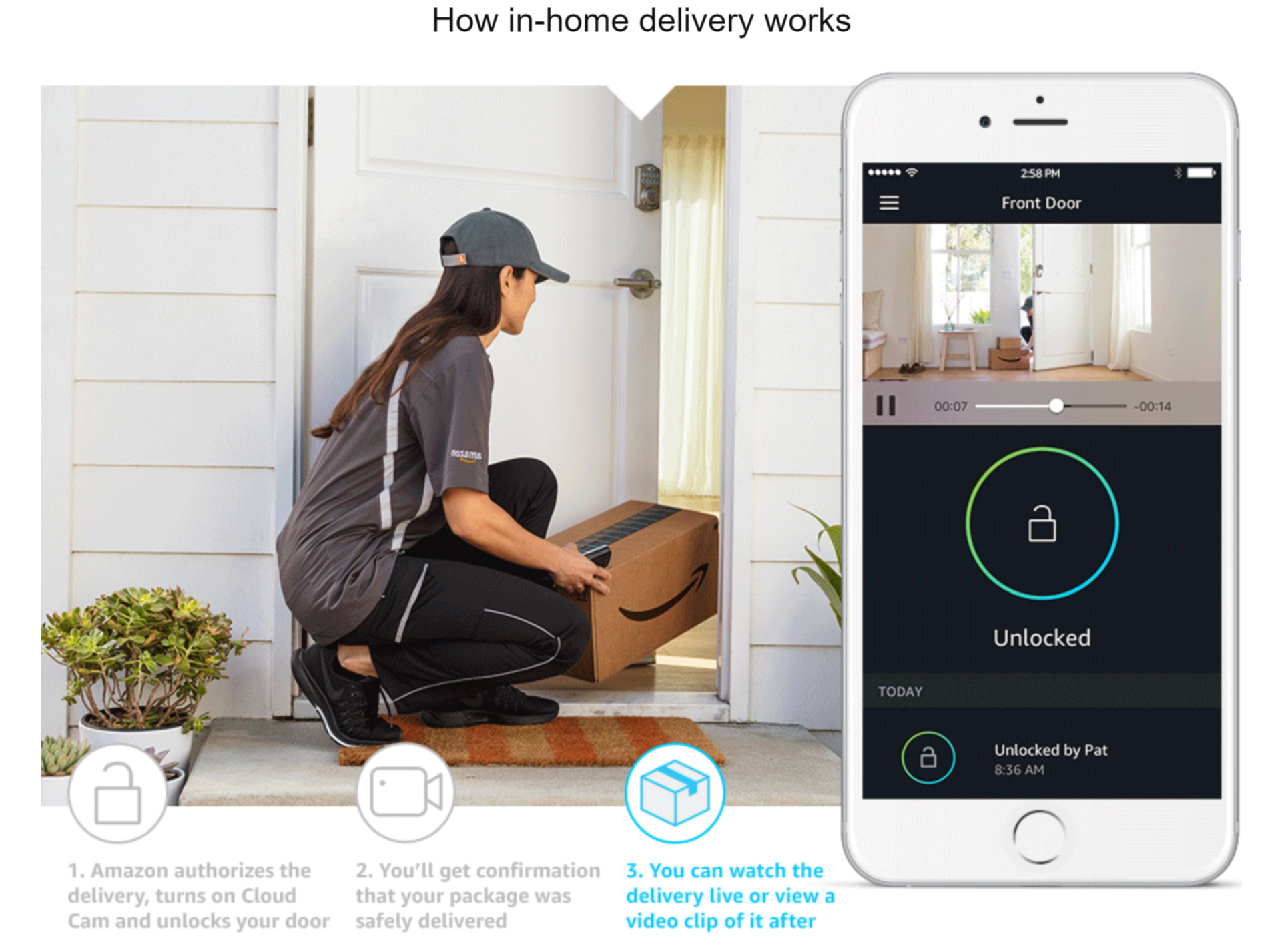Scrolling through my Twitter feed the other day, I saw the following tweet from a Twitter user that shows the worst of what is being Internet enabled.
Fuck off https://t.co/JCHtZFz6pZ
— Internet of Shit (@internetofshit) October 25, 2017
Now, while the embedded tweet above only shows the link, the post was quoting the below tweet, which made me stop and want to look at what it is talking about.
Amazon Key is a new service that lets couriers unlock your front door https://t.co/s5J8RnZXa7 pic.twitter.com/rEQ3cEeCvL
— The Verge (@verge) October 25, 2017
Wondering if this was actually a weird joke that was a few months late (April Fools), I had a quick read of the article.
There I found that this is actually a real product from Amazon, however there are a lot of caveats. And it is in those caveats that, I assume, is how this got through the Legal Department at Amazon. That doesn't make it any better though...
What it is
The Amazon Key is a system that hooks into smart locks (currently 2 types), and requires a camera pointed at the door. When a delivery driver pulls up out the front, they send a notification to the recipient's account that shows up on the app on their phone, where they can watch the delivery happening live. Then the delivery driver unlocks the door and slips the package inside, and closing the door and arming the lock. The video is in your account if you don't watch it live.
Why it is bad
- It is not (yet) integrated with Security Systems. So, you have to either keep the alarm off all day, or have a remote kill switch. This is not something that a lot of people would be uncomfortable doing. Especially if their security system does not have any sort of remote access to cameras to see what is happening.
Amazon Key is not integrated with home security systems. On the day of delivery, you will need to disarm your home security alarm. We do not recommend using in-home delivery if you are not comfortable disarming your security system on delivery day.
- If you have a code to get to your front door, it still has to be shared. Yes, it is 'kept securely', but being something that would show to the driver, they can copy it somewhere for later use
For example, you can provide your building or gate code in the Amazon Key App, which can be securely shared with drivers and guests.
-
Also, while not available yet, it will be opened up to allow you to let in tradies whenever you need them to come and work on your property. Do you trust random tradies in your own home without you? Will this system require more cameras than the one pointed at the door? Or are you blind to what they may be doing?
-
And lastly, what is stopping the person from unlocking the door and then cutting off the power before locking. Then unless you have a UPS setup, which 9/10 people do not, you are blind. By the time you call the cops, it would be very easy to take a few valuables and run...
Yes, there are benefits...

Yes, as above, this functionality is not live yet. However, this is an easy way to allow trusted individuals into your home when you aren't, without having to hand over or cut your keys. Though I assume that they would have to ask permission every time they wanted to enter, so I'm not sure how this would work for house sitters...
So, would I join?
In its current iteration, definitely not. At the moment, apart from companies that don't use Australia Post (which get delivered to a trusted location during business hours), all my deliveries get sent to a Parcel Locker. This ensures that I am not locked in to business hours pickups from the Post Office, I can do it after I get home from work.
Maybe if I had a house where there can be a 'secure enclave' that I can set up the lock that is linked, then I would feel better about it. This untrusted unknown individual only has access to my 'parcel area'.
I definitely wouldn't use it for letting random tradies in. I do have enough people I know and trust that are tradies of different sorts that this wouldn't really be required by me anyway.
Ultimately, its up to you how you keep your stuff secure, so you need to weigh up the Pros and Cons in your situation as to if you actually use this service.



